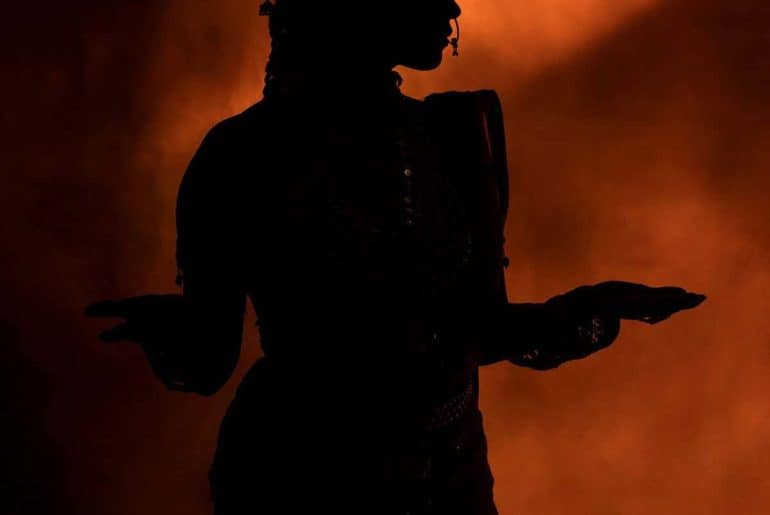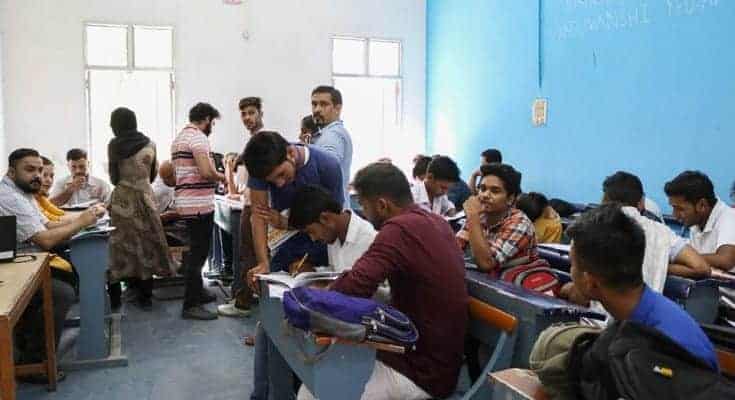Colleges for Climate Action organised a climate action march at Arts Faculty, North Campus, University of Delhi (DU) on 1st November to stand in solidarity against climate change.
The march began from Gate Four of the Arts Faculty, and was concluded at Gate three of Vishwavidyalaya Metro Station. Students from various colleges gathered at the Arts Faculty gate with masks on their faces, posters in their hands, and intent in their hearts.
Slogans like “What do we want? Climate Justice. When do want it? Right Now.”; “Climate Change se Azadi”; “As there is no Earth B!” were chanted while matching forward. All the posters and structures held by students were made out of reusable materials.
The main motive of Colleges for Climate Change, as told by the organisers was to “provide a convenient campus solution to college students to get involved in the fight against crisis.”
“Even though many people may not turn up on one day, march at institutions worldwide help to raise our voice against this as a community as a whole,” they added.
The march concluded at the Vishvavidyalaya metro station where the students orchestrated a fake die, on the sounds of raging sirens to symbolise the urgency of a required climate emergency, as otherwise, this will be the clear end.
Sharda, student of Environment Sciences said, “People think they don’t know what to do for climate crisis, they don’t know how to contribute, but there is so much they can do, join strikes, use the public transport, make dire lifestyle changes and even quit meat.”
After the fake die, students sat in at the Vishwavidyalaya metro station to share their stories of how they’ve contributed to climate action, they sang songs to promote solidarity through harmony and recounted various ways to contribute to climate action.
The women specially from colleges, were seen leading the strike. Just like the global strike pattern, this March definitely had a women’s and young adult narrative. The protest was said to be apolitical, but asking for a political discourse. A Climate Crisis Act lies in the hands of those in power. Their negligence, by not declaring climate emergency and much more is what had let many to protest earlier. But, this protest was said to be apolitical.
Pragya, a Hindu College student said, “We’re saying this is apolitical as we don’t pertain to any political ideology or are not affiliated to any political party, as climate crisis is an issue for the entire world and not just any political party.”
The march also emphasised on scrap the straw movement, with mentioning the petition which each college could fill out to ban use of all single use straws and plastic.
Feature Image Credits: Noihrit Gogoi for DU Beat
Chhavi Bahmba














